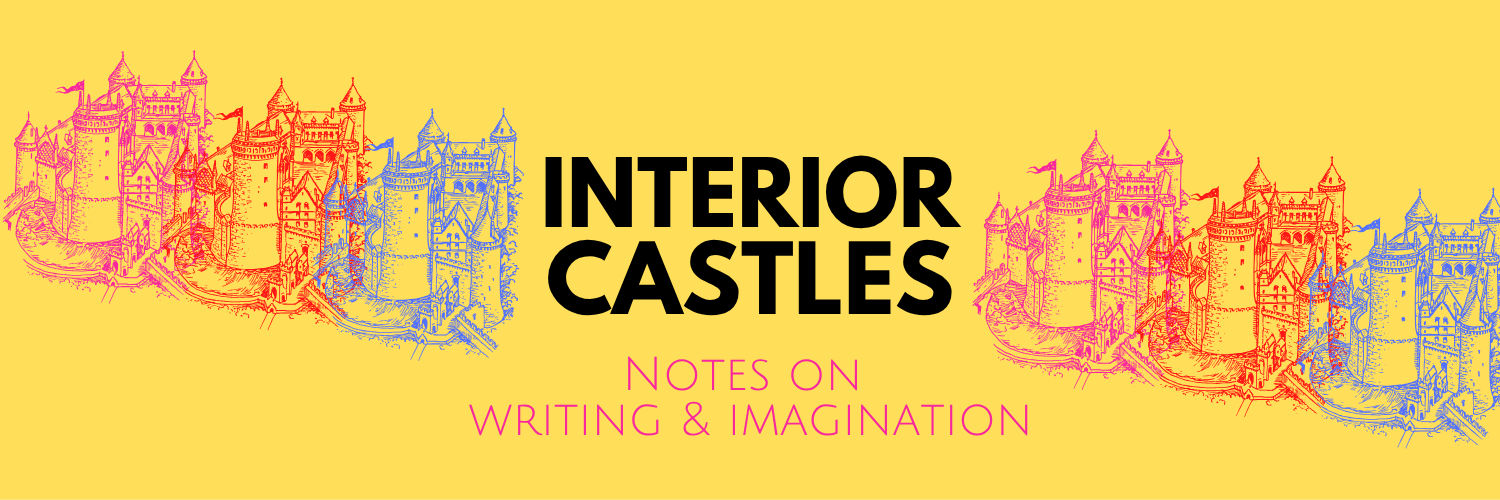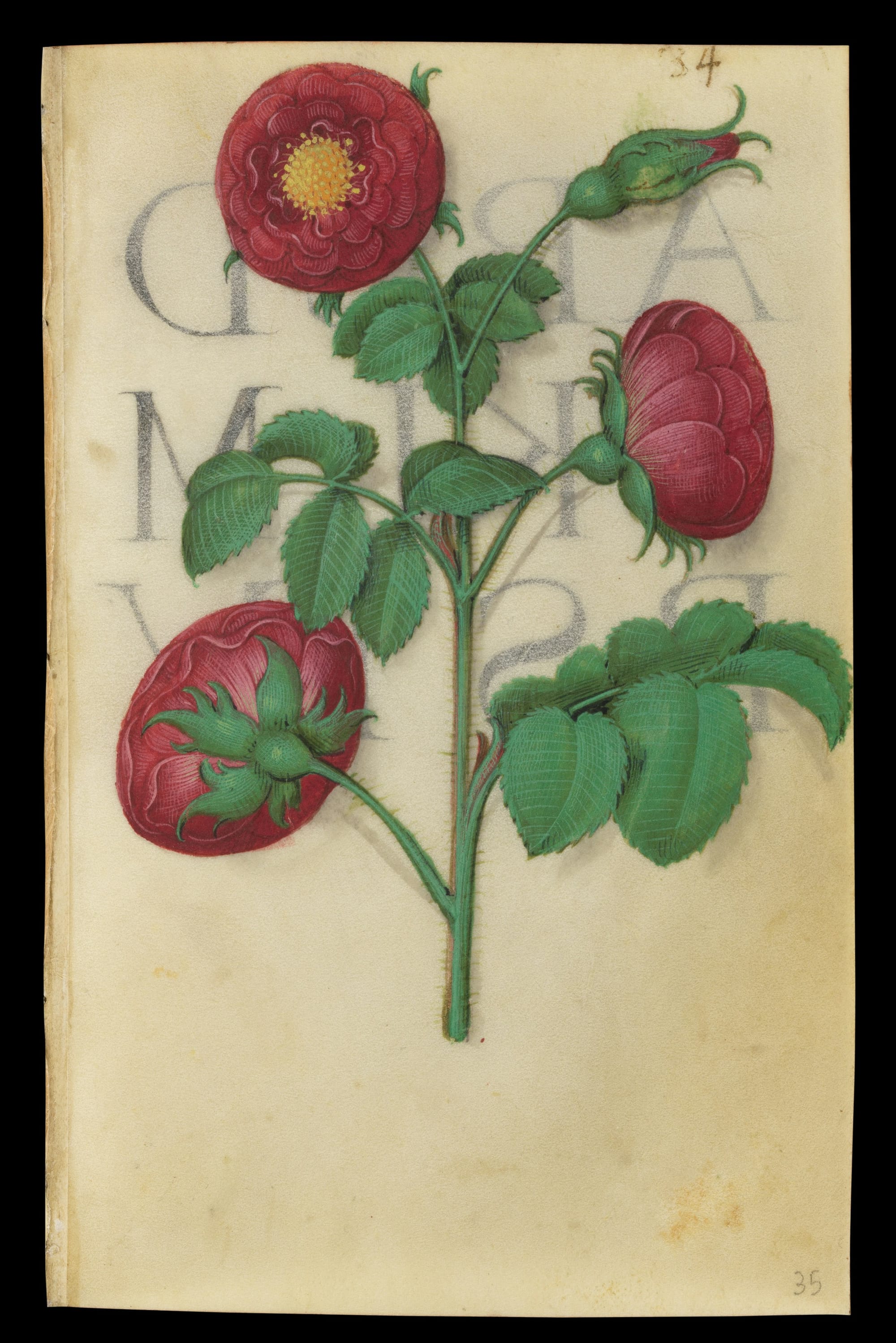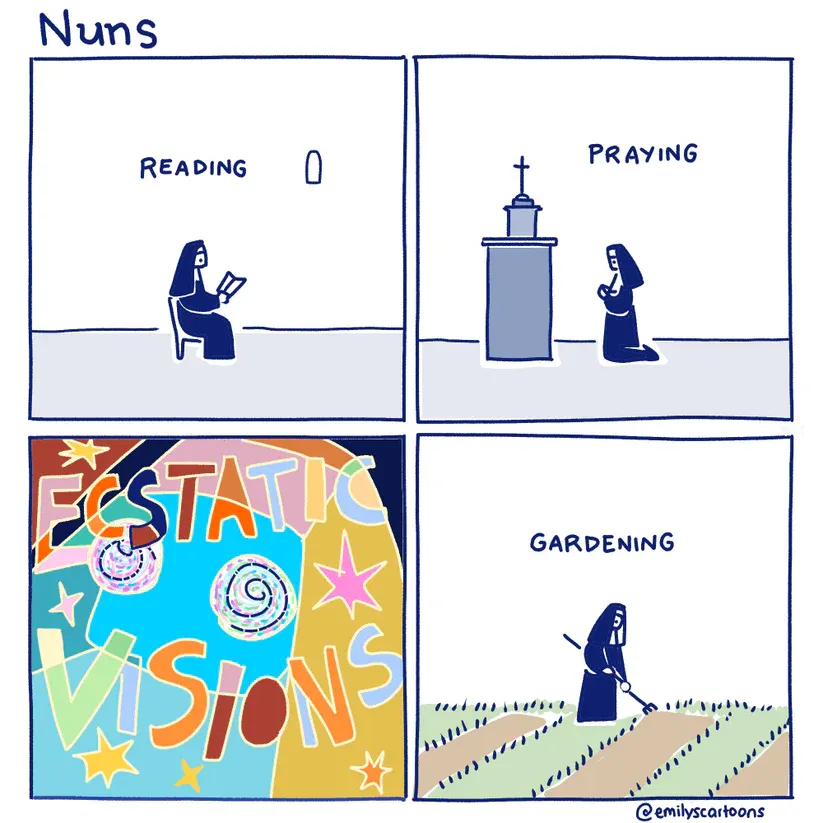A new project for weird times
Welcome to Interior Castles, where I'll be writing about creating art when life is difficult.

Weirdly, the last time I wrote a newsletter was during the first Trump Presidency.
Maybe all my newsletters are dispatches from moments that are difficult or disorienting.
That's okay. We'll re-orient together.
Who are you & how did I get on this list?
Valid questions! Let me re-introduce myself.
I'm Kristen, a culture writer & book critic. I've written for lots of outlets, including The Boston Globe, BuzzFeed, Kirkus, Los Angeles Times, and The New Republic, back when covering books in digital publications felt more possible than it does now.
If we don't know one another personally, most likely you know me from the halcyon days of Good Twitter, where I tweeted as @paperalphabet. Now I'm on Bluesky at the same handle, though it doesn't really feel the same.
I had a TinyLetter that I loved (RIP, TinyLetter), plus a couple of Substack newsletters that I created and parked. If you signed up for any of those endeavors, I've imported you here, instead!
If this isn't something you like or want to read, I understand. Feel free to unsubscribe. Merry meet, merry part, etc. I wish you well!
What is this newsletter about?
This winter, I was in deep recovery from a very bad year at work. I had stopped reading, which is unlike me—I simply found sustained time and attention difficult. Rebecca Solnit's Orwell's Roses shook me out of my funk.
In it, Solnit meditates on George Orwell's lifelong love of gardening, a hobby that sustained him in more ways than one. He gardened for beauty and for sustenance, even as he fought in the Spanish Civil War (he was chased out of the country by assassins!), wrote about rising fascism in Europe, and survived the Blitz. She ties Orwell's wide-ranging career to politics and activism and science and beauty and production, then and now.

It's not a straight-forward account of Orwell or of the cultural meaning of the rose by any means. There are meandering sentences, digressions, and appealing vine-like tendrils of ideas, and it is meticulously structured to unfold, slowly, like a flower opening to the sun.
I think it's incredible one can write a book in this way. Orwell's Roses is an argument for how human and necessary art and beauty really is—even when there are forces bigger than you to contend with.
I knew, in January, that I would need Orwell's Roses this year. I'm glad I read it then, and I'm grateful that it gave me the idea for this newsletter.
Every month, I plan to write a short note about artists who have found ways to work in, and respond to, difficult times.
I hope to write about:
-George Orwell's time in the Spanish Civil War
-The Russian dissident movements of the 1960s
-Toni Morrison's critical response to the Bush years
-James Baldwin's move to France
-Grace Paley's organizing prowess
-And many other inspirations
While we are living through the greatest contraction of civil rights in my lifetime, I would like to remember there are blueprints for navigating unrest, uncertainty, and injustice—and that many of the writers and artists we admire today were politically active in their own times, when conditions were arguably more dangerous than they are currently for us.
I say this not to downplay the current moment but because I also want this to be a space where we remember our own agency, in the world and in our imaginations. To that end, I also hope to start a collective imagination project with all of you.
We have, collectively, lost a lot in the last six months—the little-g government that makes services possible for people, as well as fundamental freedoms, like freedom of speech and protest, intellectual freedom, and freedom of the press. I would add to this a declining sense of personal safety and bodily autonomy and freedom of movement, which is especially true for women and trans people, for those who are not white and for those who are not citizens. When it comes to who experiences state violence and to what degree, these categories are anything but stable.
Even amidst these erosions, there are possibilities for pushback, protest, and refusal. For collective action and community-building and care. Despite the lack of coverage of protest in the news, there are more people in the streets now than at any point since 2017.
And despite all that we have lost and may yet lose, I feel we have an opportunity to imagine better for ourselves. In each letter, I'll provide prompts to help us envision what better looks like, what we would like to see restored or improved or altogether re-imagined. I hope some of you might share your visions and that I can publish them here, on occasion.
Last, but not least, I'd like to start teaching writing again. After more than a decade out of the classroom, I find I miss it! (All my workshop facilitation for brands who need to fix their messaging woes doesn't quite cut it. It's similar and, usually, enjoyable—but not a true substitute.) This newsletter will be a good place to work through ideas for future classes, and to let you know when I'm ready to launch one.
Right now, I'm putting together a series of craft talks on ecstatic visions in fiction, what they do for characters, and what shape they can take. How they erupt into being and transform visual language, interiority, and the material world of a novel. I'm looking at the work of Marie-Helene Bertino, Garth Greenwell, Lauren Groff, Rachel Eliza Griffiths, and Kathryn Davis, just to name a few.

I'll do my best to keep to my monthly posting schedule, but I'm notoriously bad about sticking to rigid plans for anything, so we'll see how it goes! Knowing my irregular nature, I think it's only fair to keep this newsletter free for the time being. As I gain momentum, I hope to turn on subscriptions for anyone who'd like to support my work—but that's still some time in the future.
Thanks for joining me here, now.
More soon.
